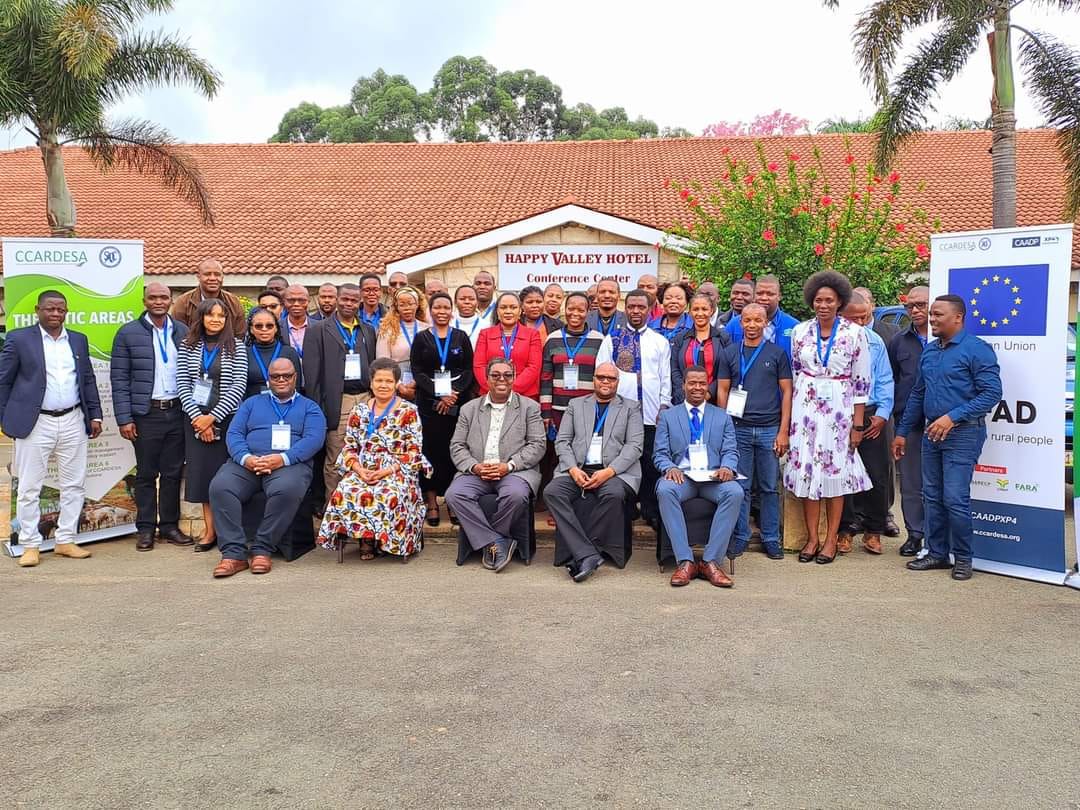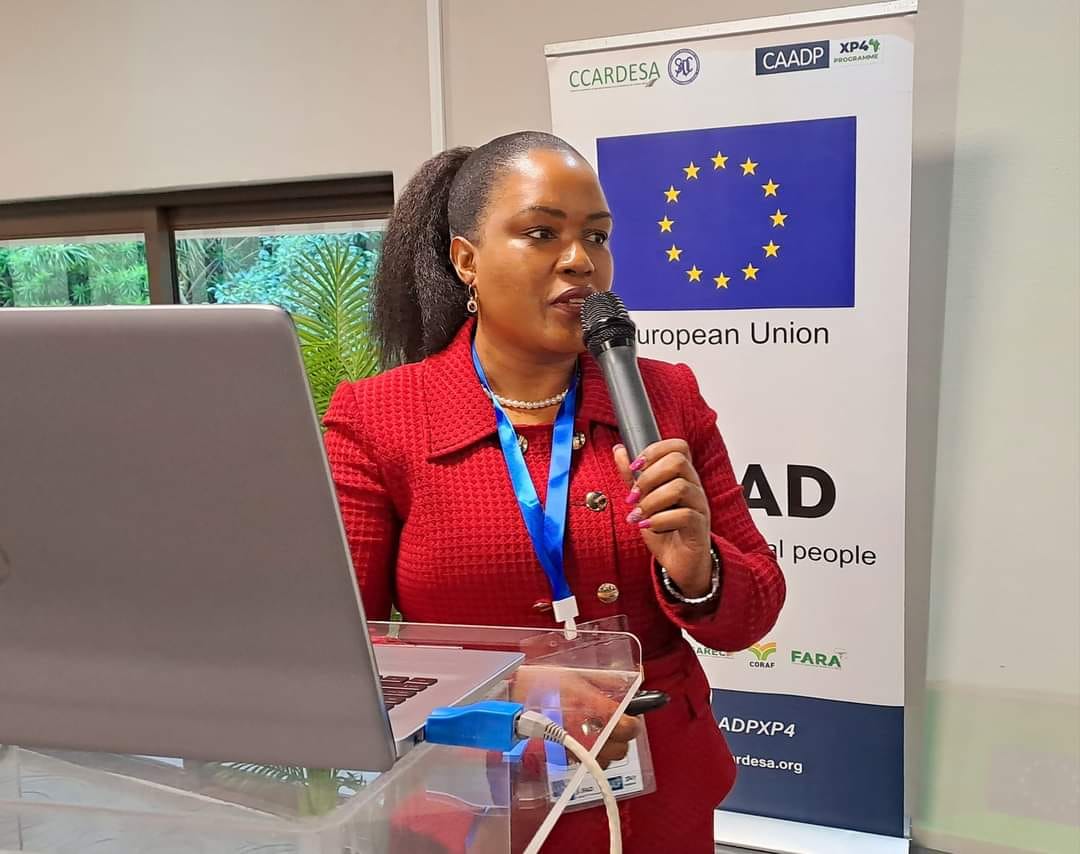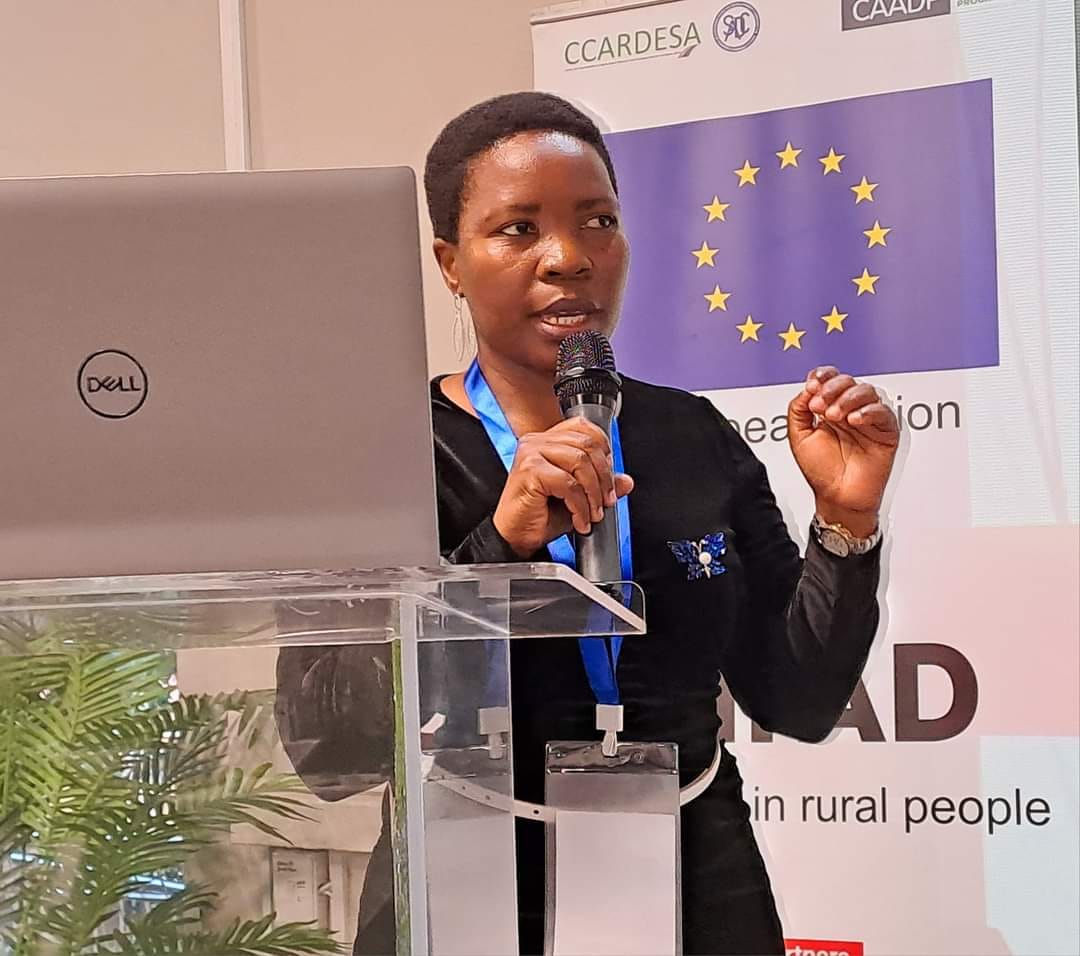Eswatini Advances Toward Fulfilling the Malabo Commitments

In an effort to bring individual Southern African Development Community (SADC) member states up to speed with the Malabo Declaration commitments, the Comprehensive Africa Agriculture Development Programme (CAADP-XP4) convened a pivotal Knowledge Management and Malabo Commitment Meeting from April 16-18, 2024, at Happy Valley, Ezulwini, Eswatini.
The CAADP-XP4 Programme is part of a collaborative effort involving the African Forum for Agricultural Advisory Services (AFAAS), the Association for Strengthening Agricultural Research in East and Central Africa (ASARECA), the West and Central African Council for Agricultural Research and Development (CORAF), and the Forum for Agricultural Research in Africa (FARA), with funding provided by the European Union and implemented by the International Fund for Agriculture Development (IFAD).
The training aimed to enhance stakeholders' understanding of knowledge management and promote engagement across various sectors, including the public sector, private sector, academia, government parastatals, United Nations organizations (FAO, WFP), farmers, women, and youth, toward meeting the Malabo commitments.

In his opening remarks, Mr. Duncan Samikwa, representing the SADC Secretariat under the Food Agriculture and Natural Resources (FANR) Directorate, commended the Kingdom of Eswatini for its significant progress. "Despite sincere efforts, our host country has never fully met all the Malabo targets," said Mr. Samikwa. However, I wish to congratulate the country for being one of the best performers in SADC, progressing well in 5 of the 7 CAADP Malabo commitments."

Professor Cliff Dlamini, the CCARDESA's Executive Director and Head of Mission, highlighted that Knowledge Management is a springboard for better data collection as it simplifies synthesizing the Malabo data. "The goals of the Malabo Declaration are not just aspirations but tangible realities that lead to the betterment of our communities across Southern Africa," he intimated.

The Principal Secretary from the Ministry of Agriculture, Mr. Sydney Simelane, officially opened the meeting by emphasizing that effective agricultural decision-making and policy formulation depend on robust knowledge management. "Knowledge Management is the bedrock of effective decision-making and policy implementation in the agricultural sector as it provides the evidence base for formulating sound agricultural policies and strategies," he stated.

Ms. Futhi Magagula, the CCARDESA Program Officer, provided an overview of the organization's programs and achievements, underscoring the importance of ongoing Malabo commitment sensitization sessions previously held in five other CAADP-XP4 target countries (i.e., Botswana, Mozambique, Namibia, Zambia, and Tanzania).

Mr. Howard Mbuyisa, an Economist in the Ministry of Agriculture, Department of Economic Planning, and Eswatini’s CAADP Focal Person, discussed the challenges and opportunities related to data collection and reporting in the agricultural sector. "I applaud stakeholders for the support they provided towards the compilation of the 4th National Biennial Report; without them, we would not have the required data to report. Mr. Mbuyisa explained. He also introduced the second-generation National Agriculture Investment Plan (NAIP), developed to foster agricultural growth in the country.

Mrs. Mokwazi Hlophe, an Economist in the Ministry of Agriculture's Department of Economic Planning, noted a slight decline in Eswatini's performance compared to the previous report. She suggested the establishment of a dedicated office for the Malabo reporting process to enhance data quality. "If a dedicated office were established for this purpose, there would be a significant improvement in data quality." she proposed.

Dr. Martin Muchero, an International Consultant, stressed the importance of extensive data collection and coordination among nations to fulfill the Malabo commitments. During the session, he emphasized the connection between the National Agriculture Investment Plan (NAIP), the Regional Indicative Strategic Development Plan (RISDP), and the CAADP/Malabo framework. This helped participants understand how these two strategic documents are intertwined. The meeting underscored the importance of integrated approaches and collaborative efforts across government agencies, regional and international bodies, private sector partners, academia, and civil society in advancing regional agricultural development and policy implementation.
The CAADP-XP4 Programme, through the concerted efforts of CCARDESA and FARA, has successfully raised awareness about Knowledge Management and the Malabo commitments across multiple Southern African countries. This initiative has reached stakeholders in Botswana, Namibia, Mozambique, Tanzania, Zambia, and Eswatini, enhancing understanding and engagement regarding these critical agricultural development strategies.

























































